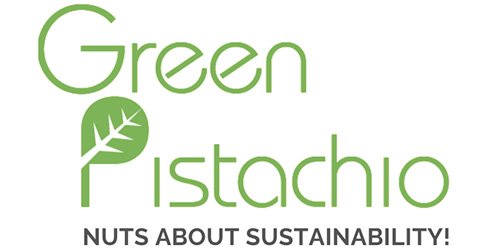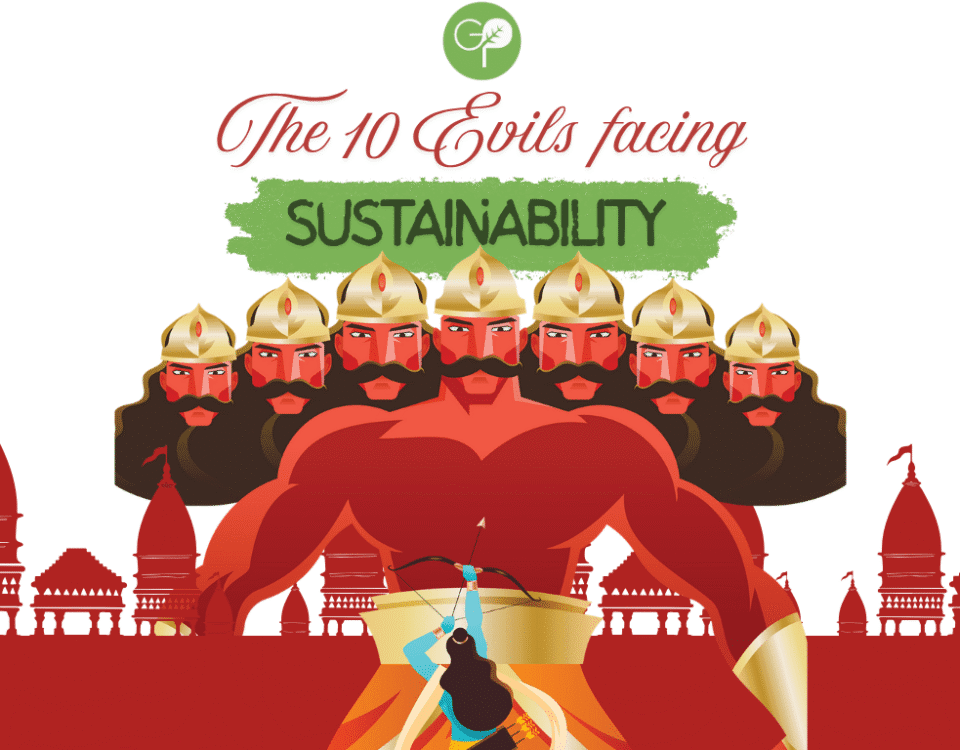Burning More Than Effigies: 10 Systemic Evils of Sustainability We Need to Slay Now
Every year on Dussehra, we gather around to watch the towering effigies of Ravana, Meghnath, and Kumbhkaran go up in flames. This symbolises the triumph of good over evil, but what if the Ravanas of today aren’t mythical villains? Instead, they’re lurking quietly behind branding, green labels, and carbon-neutral promises?
As the world turns (and warms up rapidly), “sustainability” becomes a more common buzzword, hashtag, and corporate mission statement. But once we peel back the glossy green mask, we might just find a few ten-headed monsters of our own. Here are 10 systemic evils of sustainability that deserve their own Dussehra moment. Let’s light our metaphorical matchsticks.

1. Greenwashing
Core Issue: Deception and lack of transparency
Remember that friend who “turns vegetarian” but sneaks chicken momos on the side? That’s most brands today. Greenwashing is when companies pretend to be eco-friendly while continuing harmful practices behind the scenes. Most large corporations today dabble in some sort of greenwashing in lousy attempts to save face after doing the damage or continuing to do so.
2. Eco-Colonialism
Core Issue: Imposed agendas and exploitation
Wealthy nations often dictate how poorer regions should “go green”, while sidestepping their own historical responsibility.
In India’s Sundarbans, international conservation efforts have introduced rigid forest regulations that restrict local communities’ access to mangroves they’ve lived off for generations. In Africa, EU-funded climate projects have pushed cash crop monocultures under the guise of sustainability, disrupting traditional farming.

3. Capitalist Co-option
Core Issue: Profit over planet
Sustainability is now a product. There’s a market for bamboo toothbrushes with gold-plated handles and “eco-luxury” resorts built on cleared forests. Fast fashion brands like Shein or H&M launch “green” collections using recycled materials while still producing millions of cheap garments that feed landfills.
4. Indigenous Displacement
Core Issue: Land injustice
Protecting nature shouldn’t mean evicting the original protectors. Yet Indigenous communities are often removed from their lands in the name of wildlife conservation or carbon offsetting. In India’s tiger reserves like Kanha, Adivasi communities have been displaced under conservation schemes, despite having coexisted with wildlife for centuries.
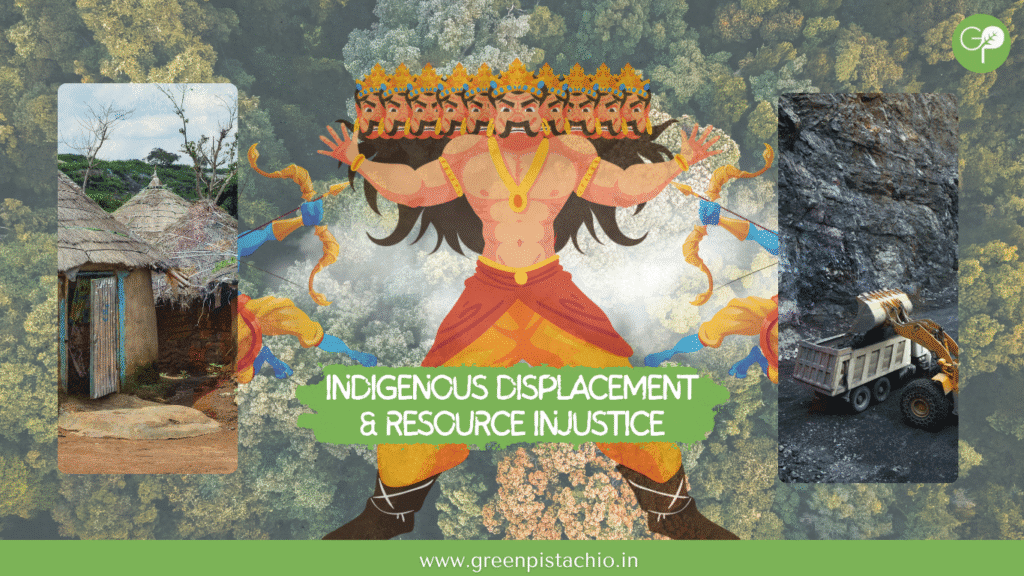
5. Resource Injustice
Core Issue: Environmental racism
The green energy transition is hungry for resources: Lithium, cobalt, and rare earth metals. But the mining of these often happens far from the spotlight, in places where regulations are weak and communities vulnerable. Over 70% of cobalt used in EV batteries comes from the Democratic Republic of the Congo, where child labour and hazardous conditions are common practices for mining.
6. Techno-fix Mentality
Core Issue: Avoidance of systemic change
Throwing technology at the climate crisis is like using a band-aid on a fractured bone. We can’t “innovate” our way out of deep-rooted systemic issues.
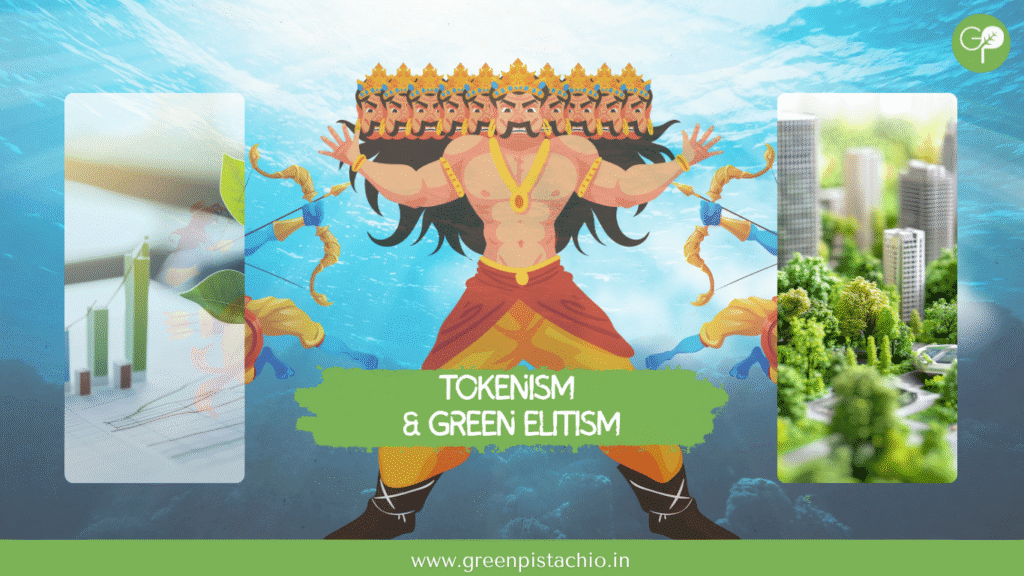
7. Tokenism
Core Issue: Lack of accountability
Be it “net-zero by 2070” or flashy Earth Day pledges. We’re often drowning in promises with no clear path or intent to fulfil them.
India’s net-zero target by 2070 sounds ambitious and lacks interim steps and strong enforcement mechanisms.
8. Green Elitism
Core Issue: Exclusion and inequality
Eco-consciousness shouldn’t be a luxury. Yet, sustainable living is marketed through boutique stores, expensive products, and Instagram influencers, leaving out the masses. Informal waste workers in India recycle more plastic and metal than most municipal systems, yet remain unrecognised in climate policy. Indigenous communities protect 80% of biodiversity but receive less than 1% of international climate finance.
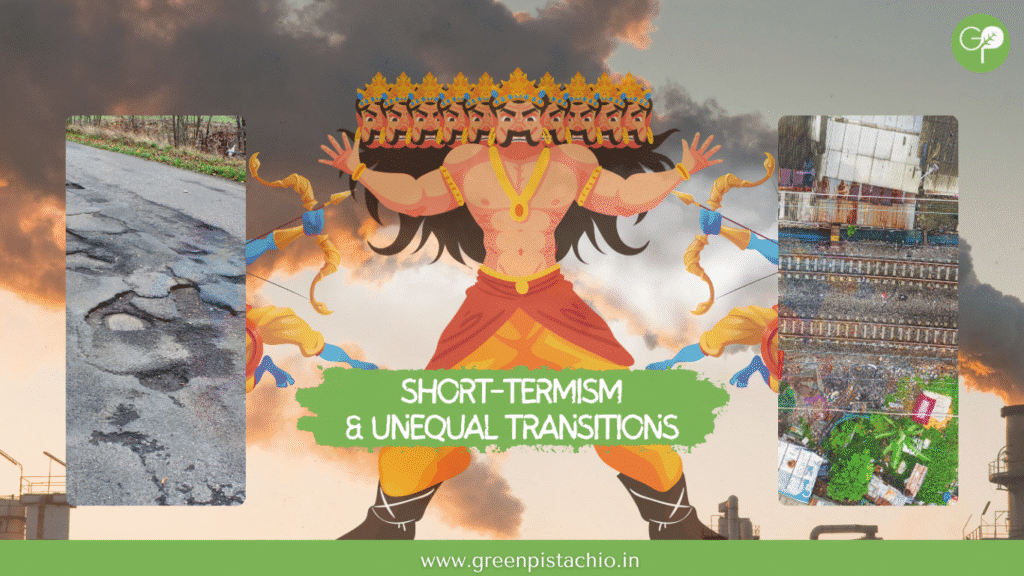
9. Short-termism
Core Issue: Unsustainable priorities
We plan for the next election, not the next generation. Short-term fixes and populist policies sabotage long-term climate goals. Indian states often waive environmental regulations for infrastructure projects close to elections, like the controversial Mumbai Coastal Road, which destroyed parts of the city’s fragile marine ecosystem.
10. Unequal Transitions
Core Issue: Social injustice
The move to a green economy should be inclusive, not leave entire sections of society jobless and voiceless. As India accelerates solar and wind energy projects, workers in coal belts like Jharkhand and Chhattisgarh face unemployment with little transition planning.
So, what’s next?
This Dussehra, as we cheer the fall of Ravana, let’s reflect on the modern-day evils lurking in the shadows of sustainability. These aren’t villains you can defeat with a flaming arrow. They need collective action, honesty, and most importantly, voices from every part of society.
Slaying these systemic issues means listening better, thinking longer-term, and maybe even questioning your “eco-friendly” tote bag.
Because saving the planet shouldn’t just look good, it should do good. If this sparked a thought or challenged one, share it.
Sources:
https://caravanmagazine.in/environment/vulnerable-forest-tribe-wildlife-conservation
https://www.landconflictwatch.org/conflicts/kanha-national-park?utm_source=chatgpt.com#
https://bangladeshasf.com/review-of-walter-rodneys-how-europe-underdeveloped-africa-part-33
